 "QUANTUM SHOT" #243
"QUANTUM SHOT" #243Student housing taken to the extreme
We all know that Japanese have developed the art of living in small spaces. They have capsule hotels, so why not have capsule student housing? The big difference is that in hotels you only stay for one night, but a house is supposed to be more permanent. These units have adequate space for a person, are pretty high-tech, well-equipped and easy to maintain - just don't invite any friends...
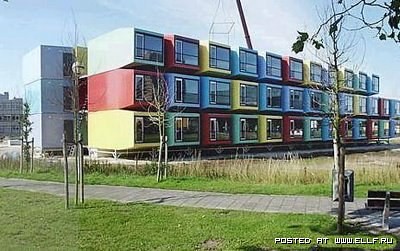

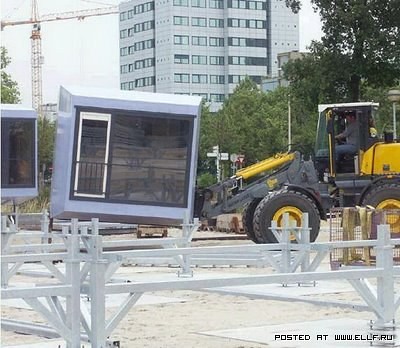
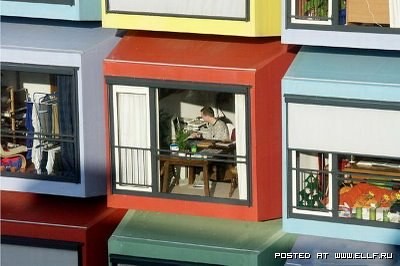

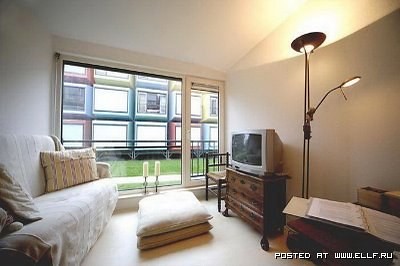
The student village shown above is located on the University grounds "De Uithof" in Utrecht, Netherlands. (see here)
Student O2 Village - Integrated with Natural Environment
The Technical University of Munich in Germany (together with M-Ch "Micro-compact home") decided to install these units in 2006 - with students and professor to live in it for a 6 months term period. The results of this experiment - all six occupants living there have extended their stay for the full academic year. (See their site)


"Each 2.65m cube features high technology, including broadband and standard internet links a plasma screen and high quality kitchen and bathroom appliances, some provided by co-sponsors, Siemens."

(images credit: inhabitat.com)
First Capsule Building
Not only students can "enjoy" living in modular, or capsule-like apartments. The whole "capsule living" idea started with this project, built in 1970 in Tokyo:
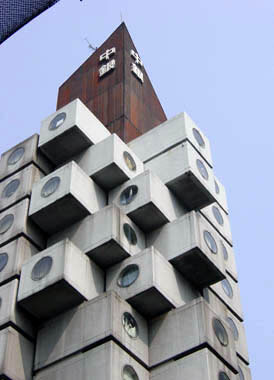
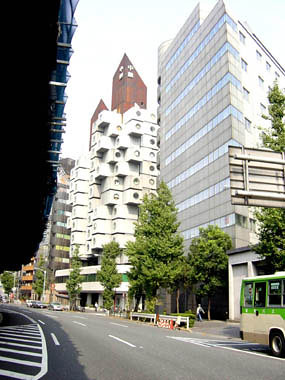
The Nagakin Capsule Tower, designed by Kisho Kurokawa, has been originally intended as a capsule hotel, but then been converted to apartment modules. The 14-story high tower has 140 capsules stacked at angles around a central core. Every unit is detachable and replaceable. Kurokawa designed units to be replaced after 33 years, but this hasn't happened. Currently the building is in process of restoration, but some people call for its demolition, so have a look while this piece of architecture history is still there:
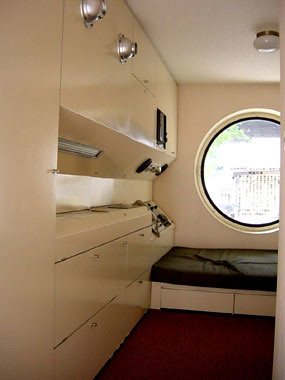
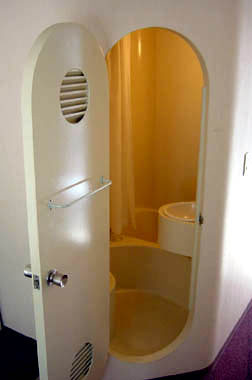
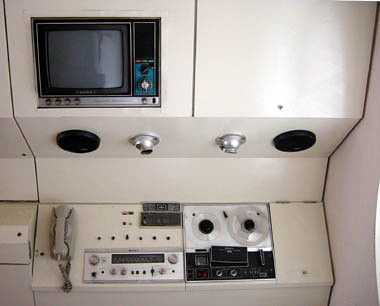

(images credit: Arcspace.com)
UPDATE. Alan pointed out that capsule housing development really started with "Habitat" project built in Montreal for Expo 1967. We know about this masterpiece, but really plan to dedicate an individual post to it. (it's that good)
Modern Japanese Capsule Hotel
There are many series of images of these practical, but a little creepy establisments, circulating around internet. The following photos were taken by Ivan Minic, on one of his travels, complemented by photography by Louie Psihoyos/CORBIS, taken in 1985.
The hotel is one of many located around Ginza, Tokyo.

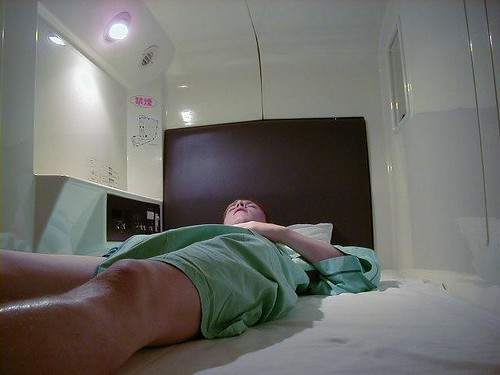
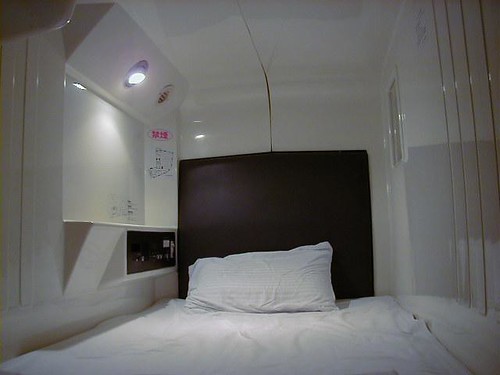



(images credit:Louie Psihoyos/CORBIS)
It's probably all right for a short stay, no more than a couple of nights, being very economical in the high-price Tokyo environment. One day you'll crawl inside one such high-tech coffin, get on the internet, and get sucked into the Matrix. We only hope the hotel chain got an insurance against that.
Reversible-Destiny Lofts - add color to your living
These cute looking (almost like a child's toy blocks) apartments are located in Mitaka, a suburb of Tokyo, Japan. They were designed by Japanese artist Shusaku Arakawa and French poet Madeline Gins. (see the project's site)

(image credit: Sushi & Sensibility)
The original concept is not only playful, it changes the occupant's life in the interesting ways, some of them quite confusing:
"Painted in eye-catching blue, pink, red, yellow and other bright colors, the building resembles the indoor playgrounds that attract toddlers at fast-food restaurants. Inside, each apartment features a dining room with a grainy, surfaced floor that slopes erratically, a sunken kitchen and a study with a concave floor. Electric switches are located in unexpected places on the walls so you have to feel around for the right one. A glass door to the veranda is so small you have to bend to crawl out. You constantly lose balance and gather yourself up, grab onto a column and occasionally trip and fall."



(images credit: myninjaplease)
Arakawa and Gins hope to start a revolution in the way communities look and live - and not only in Japan. They are currently in talks with official in Paris and New York to build "Hotel Reversible Destiny" and develop new plans for whole city blocks (with every module pre-assembled in Japan)


(images credit: Reversible Destiny)
Currently the prototype housing project has quite prohibitive prices, close to $800,000 per unit - but celebrities and big shots in Japan are snatching them up, so certainly the interest is there, which shows how many people are willing to live on sloping floors and don't even mind having a closet.
Permanent Link...

Category: Architecture
Related Posts:
The Rotating City
Environmentally-Friendly Houses
Dark Roasted Blend's Photography Gear Picks:








0 comments:
Post a Comment